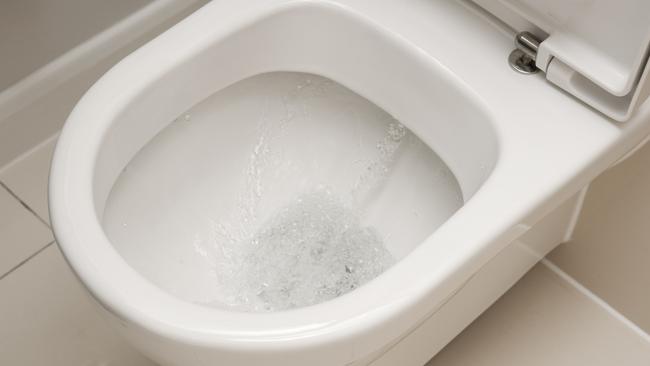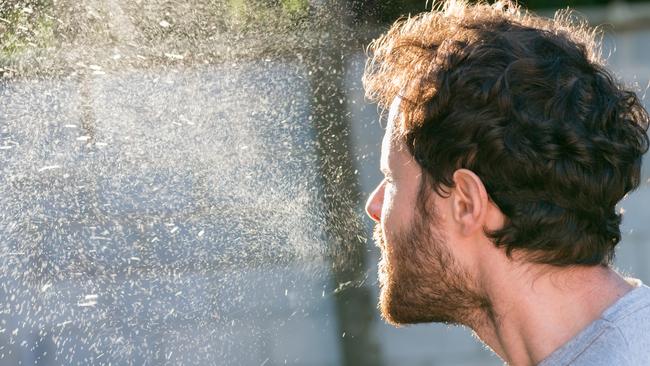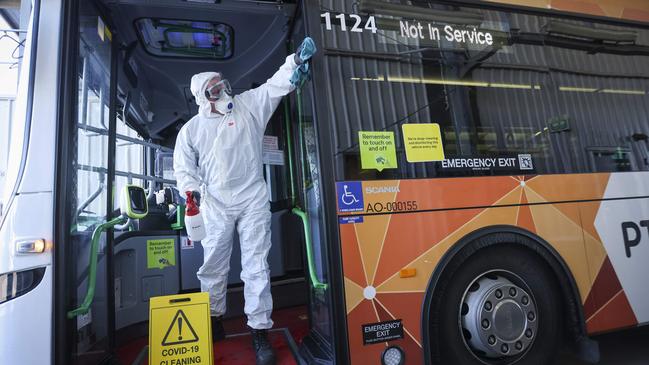Experts say flushing toilet could spread coronavirus through faecal aerosols
It’s an everyday act that happens multiple times a day, but now experts have warned it could spread the virus through ‘massive aerosolisation’.
The everyday act of flushing the toilet has been revealed as a way coronavirus could be transmitted.
Health officials have long monitored wastewater and sewage as a way to track where the virus may be lurking in the community, but now experts have revealed it could also spread after a positive case does a number two.
UNSW Sydney head of the biosecurity program at the Kirby Institute, Raina MacIntyre, said the virus was excreted in the faeces.
“Flushing generates massive aerosolisation, so you could breathe in faecal aerosols in the toilet,” she said.
“A few studies on aircraft – which have very high ventilation rates – identified the toilet as the main risk factor, in one case where someone took off their mask in the toilet.”
Professor MacIntyre said research had showed the virus could linger in the air for anywhere between three and 16 hours.
“This means transmission risk is greatest indoors, especially in poorly ventilated settings,” she said.

She said the B1617 Kappa and Delta variants appeared to result in higher viral loads, which could result in more airborne virus.
Professor MacIntyre said “fleeting contact”, which Victoria’s health chiefs were investigating as a source of transmission, could result in infection if the air was laden with infected aerosols from an infected person simply breathing, sneezing or coughing.
“We do not have a precise quantisation of transmissibility for Kappa, as it is far less well studied than Delta, but it has mutations that may make it more transmissible,” she said.
Covid response commander Jeroen Weimar said earlier this week authorities were concerned about “fleeting contact” that resulted in virus transmission in the community.

“We’re concerned about evidence, in four or five incidents, where we have seen transmission in these places with very fleeting contact,” he said.
“They’re all examples of transmission with very limited contact. This is stranger-to-stranger transmission.
“Would this have happened last year, I’m sure it will have done. What we can see with the Indian variant here is it’s happening relatively often.”

But public health epidemiologist Emma Miller said there was “insufficient evidence” to date to support the proposition that the Kappa variant was especially more easily transmitted. “Transmission really depends on how much virus there is in the environment, which is dependent on the level of viral shedding occurring at the crucial time and the level of air circulation and/or clearance, as well as the susceptibility of others in the space affected,” she said.
“In the right circumstances, transmission has been known to occur very quickly and easily – sometimes even before symptoms have appeared in the infected individual.
“In reality, firm evidence of increased transmissibility has only really been associated with a few variants, such as the Alpha variant which was found to be moderately more transmissible, perhaps up to 70 per cent.”
Dr Miller said time would tell if the Kappa variant was more transmissible, but the evidence had not yet been established.


